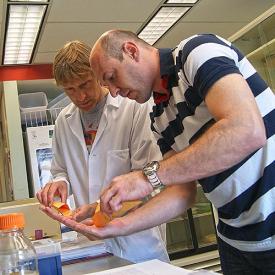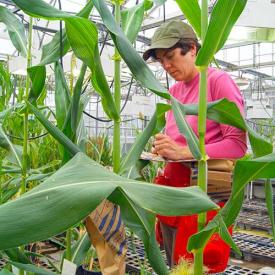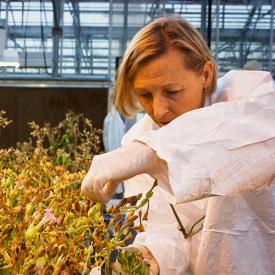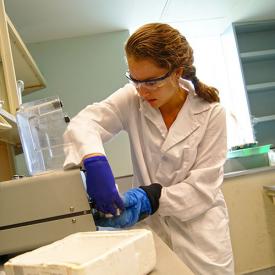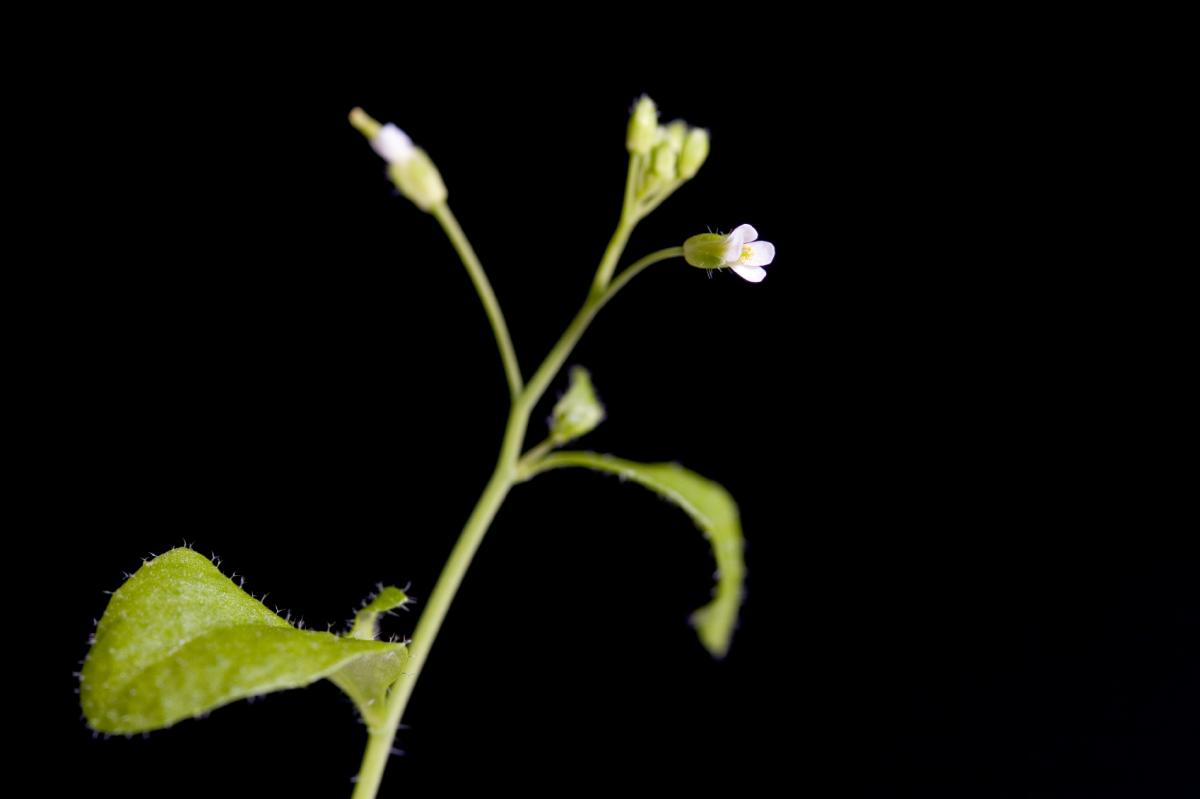 The Plant Gene Expression Center (PGEC) conducts fundamental research in plant molecular biology. Researchers are elucidating the signal transduction pathways responsible for the perception of environmental and cellular cues. We are exploring disease resistance, light perception, the circadian clock, vegetative growth and the plant-associated microbiome. Essential genes and the networks within which they operate are elucidated using molecular, genetic and biochemical approaches.
The Plant Gene Expression Center (PGEC) conducts fundamental research in plant molecular biology. Researchers are elucidating the signal transduction pathways responsible for the perception of environmental and cellular cues. We are exploring disease resistance, light perception, the circadian clock, vegetative growth and the plant-associated microbiome. Essential genes and the networks within which they operate are elucidated using molecular, genetic and biochemical approaches.
The PGEC is a collaboration of the Agricultural Research Service of the U.S. Department of Agriculture and the Plant & Microbial Biology Department of the University of California, Berkeley. The Center's principal investigators are faculty at UC Berkeley, and research opportunities are available in our laboratories for graduate and undergraduate students.

